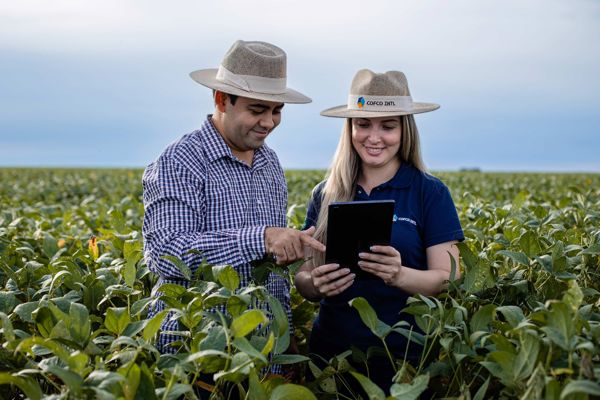
Paulo’s job - Bridging the worlds of big business and farming
Besides a vibrant business community, Brazil’s megacity of São Paulo offers a rich cultural scene and vibrant social life. At the end of each week, however, Paulo Bonissoni, COFCO International’s Origination Director in Brazil, looks forward to leaving the city of 20 million people and retreating to his family home in Curitiba on Parana State, southern Brazil.
“My work is always exciting but it can be relentless,” Paulo says. “I give it everything and then I try to switch off.”
With a team of 190 people spread around Brazil, Paulo buys grains and oilseeds either for processing into new products such as biodiesel or for the export channel such as China and the rest of the world. The demand and volumes are constantly growing. And so is Paulo’s work.
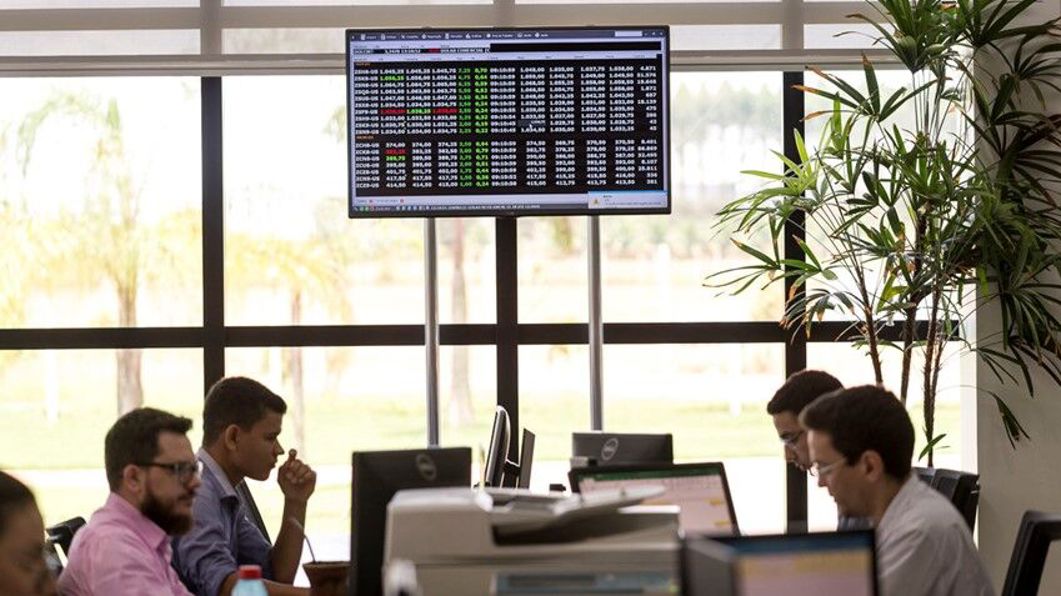
The role requires him and his team to understand both big business and the daily realities of producers, large and small, often operating in some of Brazil’s remotest areas. People think of Brazil as an agricultural giant, but Paulo says “a lot comes down to human relationships”.
“Of course, we need to understand the world of big business,” he says. “But we have to be able to connect with people, build trust and maintain a lasting relationship, regardless of whether our partner is a big producer or a smallholder farmer.”
Looking after the team, according to Paulo, is also a critical part of running a successful operation.
“We need the right people and in the place to be able to grow consistently,” he says.
Bringing China and Brazil closer
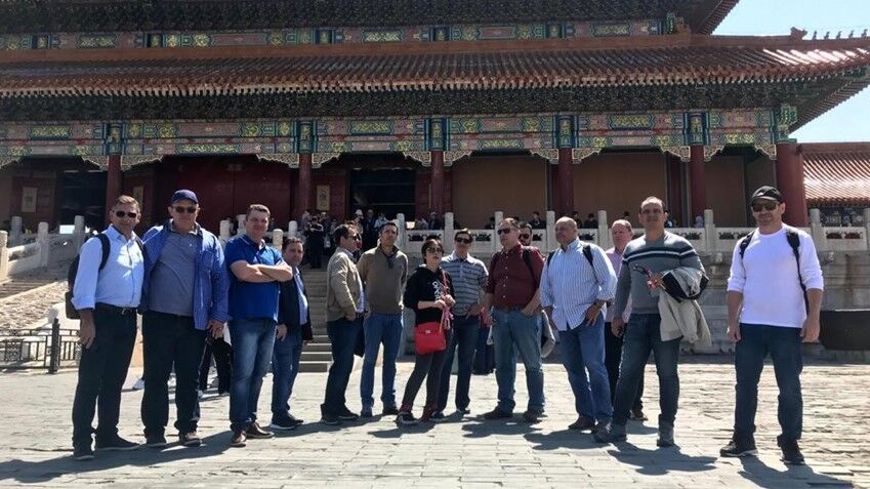
With more than 25 years of work around the world, Paulo has plenty of experience connecting the big picture with local knowledge.
He recalls taking a group of customers on a business trip to China, birthplace of COFCO International, and the main destination market for Brazil’s rapidly growing soybean production.
“We wanted our producers to understand where their products are going, who COFCO is and where we come from,” Paulo explains.
Within the agribusiness world, the relationship between China and Brazil is crucial. And bringing it to the human level, Paulo says, is “not just strategic but great fun too.”
Paulo and the teammates who accompanied him had not been to China before, and most of the Brazilian farmers who travelled with them did not speak any English or Mandarin either. The trip was a memorable experience.
In the end, says Paulo, despite the language barriers and cultural differences, people left knowing and understanding one another much better.
“We all laughed lots and bonded, from a business perspective, but also just socially and culturally”.
Early start
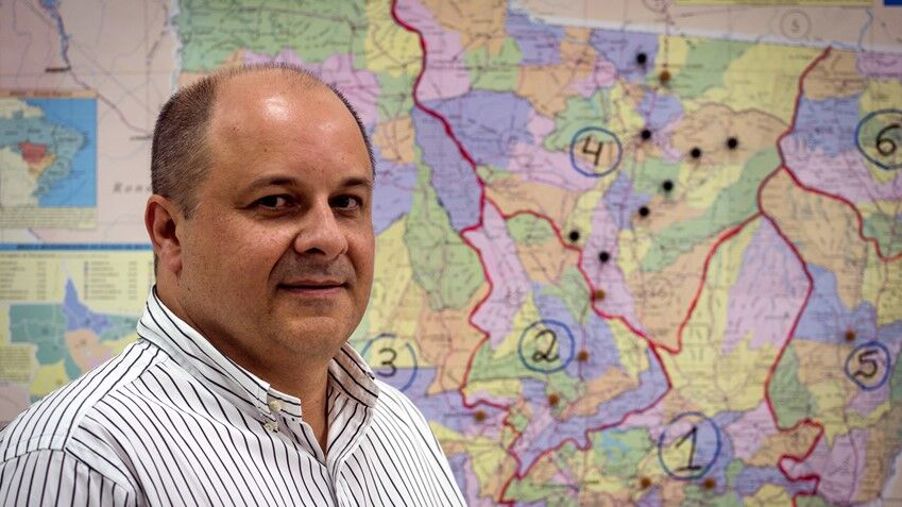
Paulo began his career more than 25 years ago in a small brokerage house in the south of Brazil, while still at university. He immediately had an appetite for more.
Straight after graduation, he went to work for the Chicago’s Board of Trade, then joined a brokerage firm, Rodman & Renshaw, which eventually moved him to Vienna.
There, he managed clients in Eastern European countries, before moving to Switzerland where he worked for Andre&Cie for 2 years in the city of Lausanne.
“I travelled the world with the most exciting and important companies in the business,” he says. “Today, I’m extremely proud to be back in Brazil and I couldn’t be happier with how things have turned out.”
Over the course of his career, Paulo has seen Brazil become one of the world’s largest producers of soybean and corn. The challenge for Brazil, he says, is to embrace this rapid expansion, but to do it in a way that maximizes the benefits while minimizing the social and environmental impacts.
“There is so much more to this work than just buying and selling,” Paulo says. “The market may be rapidly changing, but so are business standards.”
Brazil’s agricultural production is under the spotlight and sustainability gains in importance every day, playing a larger role in determining the success of a business.
According to Paulo, only those who apply strict environmental and social standards will make it in the long-term.
As a company we help Brazilian farmers to make a living through soy,” Paulo says. “But we want to work with those who do it in a responsible way.”
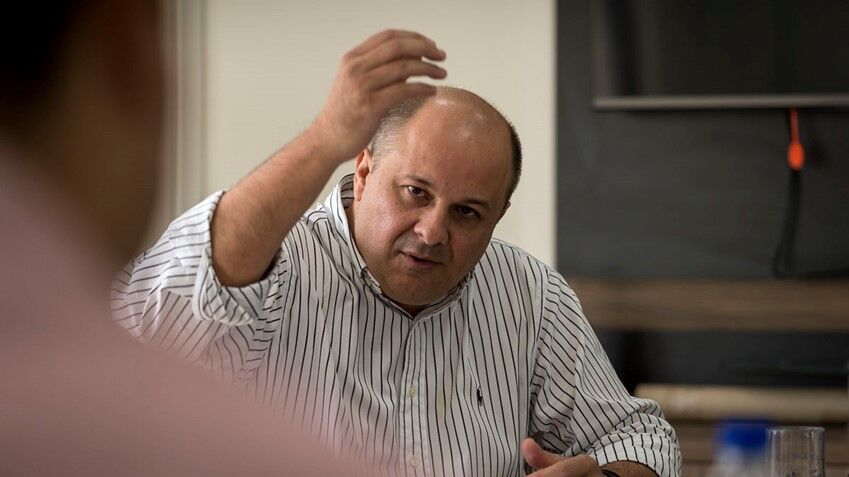
In practice, this means that Paulo and his team gather in-depth knowledge of the suppliers, check their compliance with local and international sustainability policies and procedures. The team also spends more and more time and effort raising awareness about the benefits of sustainable production.
“That is the only way we will grow our business in a way that will last,” Paulo says.
In 2019, financed partly by US$ 2.3 billion sustainability-linked loan, COFCO International achieved 100 percent traceability for all soy sourced directly in 25 of Brazil’s Cerrado municipalities where native vegetation was at risk.
By 2023, the company expects to achieve full traceability to farm for all directly sourced Brazilian soybean.
Paulo’s close relationships with farmers and producers provide valuable feedback about the impact of the company’s policies and puts his team at the frontline of the company’s sustainability efforts.
“We see a real shift happening,” Paulo says. “Producers and farmers are becoming extremely positive about sustainability.”
Critically for COFCO, they increasingly see the company as a reliable partner helping them to achieve environmental and social best practices.
Working together is “the only way we can be sure to still work in this business for years to come,” says Paulo.
